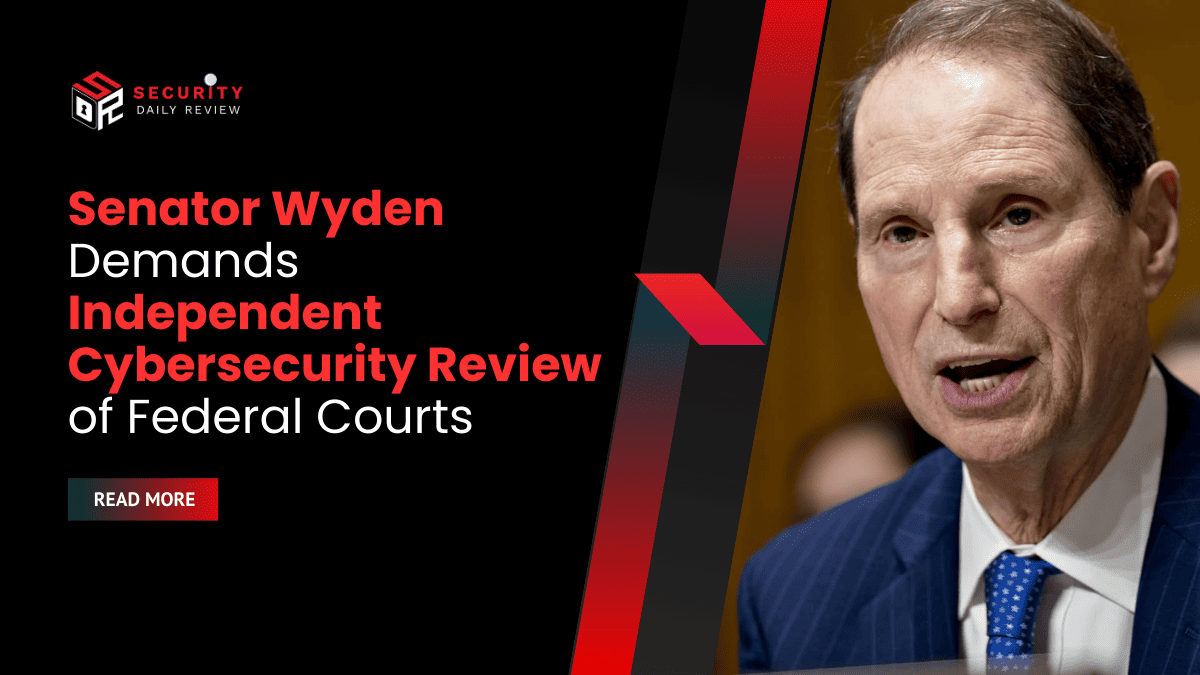A series of high-profile cybersecurity breaches targeting the federal judiciary has once again thrust the court system’s outdated IT infrastructure into the spotlight. U.S. Senator Ron Wyden has issued a sharp call to action, urging Chief Justice John Roberts to commission an independent review to investigate the systemic vulnerabilities that continue to expose critically sensitive legal information.
The request follows the disclosure of a recent breach affecting the federal electronic case management system—an incident that reportedly compromised sealed records, confidential informant identities, and other sensitive national security data. With the same vulnerability exploited in multiple intrusions going back to at least 2020, Wyden’s appeal reflects growing concern over the judiciary’s failure to implement modern cybersecurity controls and proactively manage threats.
Critical Flaws in Judiciary Cyber Defenses Have Persisted for Years
Senator Wyden’s request, delivered in a formal letter to Chief Justice Roberts, outlines systemic lapses that he characterizes as not only avoidable but dangerously negligent. Chief among them is the failure to adopt multi-factor authentication (MFA)—a basic cybersecurity control that has been mandated for executive branch systems since 2015. According to Wyden, the judiciary does not plan to roll out MFA court-wide until the end of 2025, leaving a critical security gap in the interim.
The senator further criticized the Administrative Office of the U.S. Courts for resisting transparency by failing to disclose the full scope of the recent breach, which was reportedly first made public through Politico. While official attribution is yet to be confirmed, cybersecurity sources suggest Russian threat actors may be responsible—mirroring tactics seen in a 2020 federal court hack that exploited similar vulnerabilities.
Key Details About the Series of Incidents Include:
- Breaches impacted electronic case management systems across multiple federal district courts.
- Information at risk includes sealed legal filings, details on confidential informants, and sensitive personal data.
- Affected courts have urged filers not to upload sealed documentation amid uncertain data protection guarantees.
- Despite prior warnings and a history of compromise, essential fixes and cybersecurity governance reforms remain unrealized.
The scope of the compromise raises serious national security concerns. If threat actors obtained or exfiltrated sealed legal materials and human intelligence sources, the downstream consequences could jeopardize law enforcement operations and judicial integrity for years.
A Call for Independent Oversight and Transparent Reform
To confront what he describes as a foundational failure to secure court systems, Senator Wyden is urging the judiciary to allow external oversight. Specifically, he recommends that a team from the National Academy of Sciences—composed of impartial experts with no connection to the judiciary—be tasked with reviewing both the incidents and the broader state of federal judiciary cybersecurity.
Wyden hasn’t minced words about what he sees as institutional complacency. In his letter, he warns that the judiciary “ignored expert advice” when warned about its outdated technology. He also referenced comments made by U.S. Circuit Judge Michael Scudder, who reportedly acknowledged the court system’s reliance on obsolete IT infrastructure.
These transparency and governance concerns go beyond breach remediation—they touch on long-standing accountability issues in how federal courts manage Americans’ sensitive records. Wyden specifically highlighted the judiciary’s failure to enforce its own redaction rules, which require personal data to be removed from public court filings. As a result, tens of thousands of individuals each year may have their private information inadvertently disclosed.
Cybersecurity Negligence Raises Broader National Security Questions
Several sources covering the fallout from the breach have echoed Wyden’s core criticisms. MeriTalk reports that sensitive judicial data from state-level and federal cases may have been exposed, while CyberScoop underscores Wyden’s contention that non-enforcement of existing redaction guidelines is actively harming the public.
The call for an independent cybersecurity review comes at a time when cyber threats to federal infrastructure are intensifying. Yet despite this context, the judiciary’s approach to building resilience has remained reactive, fragmented, and in some cases dangerously outdated.
Reports indicate that the Administrative Office of the U.S. Courts has thus far declined to comment publicly—a silence that may further erode confidence in the judiciary’s willingness to confront the seriousness of its information security posture.
Forward Motion Demands Increased Accountability and Resource Allocation
While the requested independent review by the National Academy of Sciences has yet to be confirmed, the pressure is growing for courtroom IT modernization to keep pace with executive agencies and legislative branch systems. Judicial systems handle some of the most sensitive data in government operations, including sealed indictments, pre-trial intelligence, witness protection records, and grand jury proceedings. Yet their cybersecurity provisions appear to lag behind federal standards by nearly a decade.
From a federal IT governance perspective, Wyden’s push underscores several concrete priorities moving forward:
- Expedite full deployment of MFA and zero trust architectures across all court systems.
- Empower external auditors to conduct risk assessments and breach impact analyses.
- Establish unified redaction compliance enforcement mechanisms to protect personal information in public records.
- Replace or remediate aging systems that no longer meet fundamental security baselines.
Taken together, these measures could recalibrate the federal judiciary’s cybersecurity posture and mitigate future risks—if adopted and executed with transparency and urgency.
With high-profile breaches again placing judicial data at risk, the time for incremental updates may have passed. Whether or not Chief Justice Roberts authorizes an independent cybersecurity review, one thing is clear: systemic and overdue changes are vital to securing the integrity of the nation’s courts.









